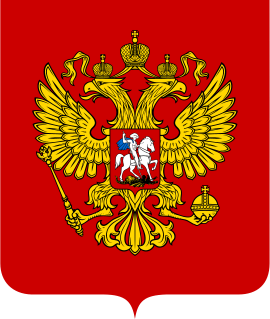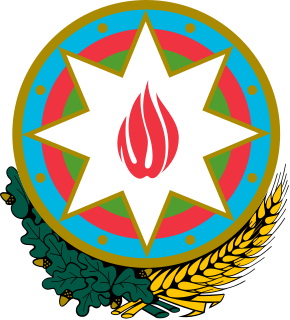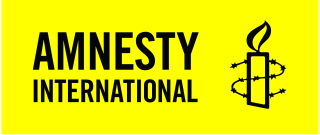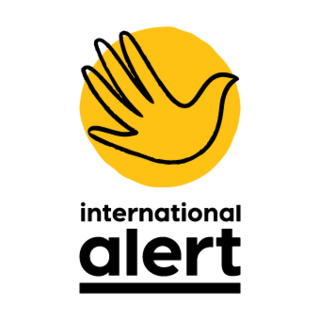Advocacy is an activity by an individual or group that aims to influence decisions within political, economic, and social institutions. Advocacy includes activities and publications to influence public policy, laws and budgets by using facts, their relationships, the media, and messaging to educate government officials and the public. Advocacy can include many activities that a person or organization undertakes including media campaigns, public speaking, commissioning and publishing research. Lobbying is a form of advocacy where a direct approach is made to legislators on a specific issue or specific piece of legislation. Research has started to address how advocacy groups in the United States and Canada are using social media to facilitate civic engagement and collective action.
Donella Hager "Dana" Meadows was an American environmental scientist, educator, and writer. She is best known as lead author of the books The Limits to Growth and Thinking in Systems: a Primer.

Campaign finance, also known as election finance or political donations, refers to the funds raised to promote candidates, political parties, or policy initiatives and referenda. Political parties, charitable organizations, and political action committees are vehicles used for fundraising for political purposes. "Political finance" is also popular terminology, and is used internationally for its comprehensiveness. Political donations to funds received by political parties from private sources for general administrative purposes.

Apache Struts 1 is an open-source web application framework for developing Java EE web applications. It uses and extends the Java Servlet API to encourage developers to adopt a model–view–controller (MVC) architecture. It was originally created by Craig McClanahan and donated to the Apache Foundation in May 2000. Formerly located under the Apache Jakarta Project and known as Jakarta Struts, it became a top-level Apache project in 2005.

As a successor to the Soviet Union, the Russian Federation remains bound by such human rights instruments as the International Covenant on Civil and Political Rights and International Covenant on Economic, Social and Cultural Rights (fully). In the late 1990s, Russia also ratified the European Convention on Human Rights and from 1998 onwards the European Court of Human Rights in Strasbourg became a last court of appeal for Russian citizens from their national system of justice. According to Chapter 1, Article 15 of the Constitution adopted in Russia in December 1993, these embodiments of international law take precedence over national federal legislation. However, from Vladimir Putin's second term as President (2004–2008) onward there were increasing reports of human rights violations.
Health promotion is, as stated in the 1986 World Health Organization (WHO) Ottawa Charter for Health Promotion, the "process of enabling people to increase control over, and to improve their health."
Contributing to the establishment of human rights system in Africa are the United Nations, international law and the African Union which have positively influenced the betterment of the human rights situation in the continent. However, extensive human rights abuses still occur in many sections of the continent. Most of the violations can be attributed to political instability, racial discrimination, corruption, post-colonialism, economic scarcity, ignorance, illness, religious bigotry, debt and bad financial management, monopoly of power, lack/absence of judicial and press autonomy, and border conflicts. Many of the provisions contained in regional, national, continental, and global agreements remained unaccomplished.

International organizations have frequently alleged that Azerbaijan has violated human rights standards established in international law. Human Rights Watch issued a 2013 report accusing Azerbaijan of imprisoning and harassing political activists and human rights defenders. In 2019, Human Rights Watch called the situation of human rights in Azerbaijan "appalling", citing "rigid control" by the government, "severely curtailing freedoms of association, expression, and assembly", as well as "torture and ill-treatment" of journalists, lawyers, and opposition activists. According to Reporters without Borders, Azerbaijan ranks 168 of 180 countries on the Press Freedom Index. A 2020 report by the U.S. State Department accused Azerbaijan of a wide variety of human rights abuses, including "unlawful or arbitrary killing", "heavy restrictions on free expression, the press, and the internet", and "the worst forms of child labor".

A facilitator is a person who helps a group of people to work together better, understand their common objectives, and plan how to achieve these objectives, during meetings or discussions. In doing so, the facilitator remains "neutral", meaning they do not take a particular position in the discussion. Some facilitator tools will try to assist the group in achieving a consensus on any disagreements that preexist or emerge in the meeting so that it has a solid basis for future action.

Human rights in Bangladesh are enshrined as fundamental rights in Part III of the Constitution of Bangladesh. However, constitutional and legal experts believe many of the country's laws require reform to enforce fundamental rights and reflect democratic values of the 21st century. Proposed reforms include strengthening parliamentary supremacy, judicial independence, the separation of powers, repealing laws which restrain freedom of the press and disbanding security agencies which violate civil liberties.

Amnesty International is an international non-governmental organization focused on human rights, with its headquarters in the United Kingdom. The organization says it has more than ten million members and supporters around the world.

Nonviolent resistance (NVR), or nonviolent action, is the practice of achieving goals such as social change through symbolic protests, civil disobedience, economic or political noncooperation, satyagraha, or other methods, while being nonviolent. This type of action highlights the desires of an individual or group that feels that something needs to change to improve the current condition of the resisting person or group.

People's Action is a national progressive advocacy and political organization in the United States made up of 40 organizations in 30 states. The group's stated goal is to "build the power of poor and working people, in rural, suburban, and urban areas to win change through issue campaigns and elections."
Noel M. Tichy is an American management consultant, author and educator. He has co-authored, edited or contributed to over 30 books. While teaching at the MBA program at the University of Michigan, Tichy along with Jim Danko and Paul Danos, first instituted " the defining attribute" of the program: Multidisciplinary Action Projects in which students work on an actual corporate business issue. In 2009, the Washington Post named Control Your Destiny or Someone Else Will which he co-authored with Stratford Sherman as one of the Top 10 leadership books. As the director of global development at GE's Crotonville, from 1985–1987 he instituted the action learning programs which helped make it "one of the premiere corporate learning centers in the world."

Gita Sahgal is a writer and journalist on issues of feminism, fundamentalism, and racism, a documentary films director, and a women's rights and human rights activist.
Advocacy groups, also known as interest groups, special interest groups or pressure groups use various forms of advocacy in order to influence public opinion and ultimately policy. They play an important role in the development of political and social systems.

A world café is a structured conversational process for knowledge sharing in which groups of people discuss a topic at several small tables like those in a café. Some degree of formality may be retained to make sure that everyone gets a chance to speak. Although pre-defined questions have been agreed upon at the beginning, outcomes or solutions are not decided in advance. The assumption is that collective discussion can shift people's conceptions and encourage collective action. Events need to have at least twelve participants, but there is no upper limit. For example, in Israel in 2011 an event called 1000 Tables was hosted in several cities on a single day as part of a series of social justice protests held around that time, and around a thousand people participated.

International Alert is an independent international peacebuilding organization, operating programs around the world to address conflict. Its mission is to build a more peaceful world by: working with people directly affected by conflict to find peaceful solutions; shaping policies and practices to support peace; and collaborating with those striving for peace. Alert accomplishes these goals through dialogue, training, research and policy analysis, advocacy and outreach activities.
Anti-corruption comprise activities that oppose or inhibit corruption. Just as corruption takes many forms, anti-corruption efforts vary in scope and in strategy. A general distinction between preventive and reactive measures is sometimes drawn. In such framework, investigative authorities and their attempts to unveil corrupt practices would be considered reactive, while education on the negative impact of corruption, or firm-internal compliance programs are classified as the former.











